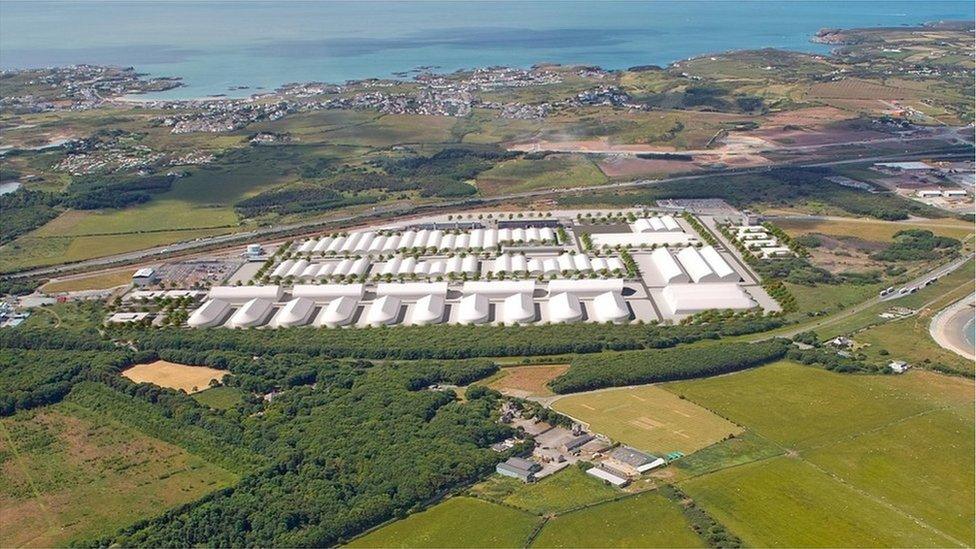Waste: Landfill a 'better option' than burning, says AM
- Published
- comments
Is burning rubbish a good way of disposing of it?
Sending rubbish to landfill is better than burning it in large incinerators, the chairman of the assembly's environment committee has claimed.
Labour AM Mike Hedges described incineration as "a very dangerous way of getting rid of waste materials".
He wants the Welsh Government to ban any new plants from being developed here, except for burning medical waste.
It said they were a "transitionary step" but the long-term solution was to move away from single-use plastics.
And others have argued more incinerators are needed if Wales is to achieve its ambition of becoming a "zero waste" nation by 2050.
Mr Hedges, who has campaigned in the past against a proposed incinerator in his Swansea East constituency, said his main concern was around emissions.
"Some of it will be carbon dioxide which is very bad for global warming, some of it will be nitrous oxide and dioxins which we know are bad for health."
"Hospitals need them, they have to get rid of pathogens in some of the medical waste but there's no reason why domestic waste needs to be incinerated."
"Can we get on with reduction rather than looking for ways of getting rid of more and more waste?"
In the meantime, he said landfill was "a slightly less bad option".
"As long as you have it in an area that's secure it will stay there, instead of putting it out into the atmosphere that may do us harm."
Another senior AM, Plaid Cymru's Dai Lloyd, chair of the assembly's health committee, also told BBC Wales he supported a ban on new incinerators.
"We must do everything we can to avoid more air pollution," Dr Lloyd said.
"The answer is to invest in specialist plants to recycle plastics in Wales, which we can't do at the moment."
Conservative environment spokesman Andrew RT Davies repeated his calls for a moratorium on new large-scale incinerators until there was a national plan to deal with them.
"We believe there should be no development of large-scale incinerators in communities where there is no history of large waste businesses, or without comparable large scale industry and suitable infrastructure," he said.

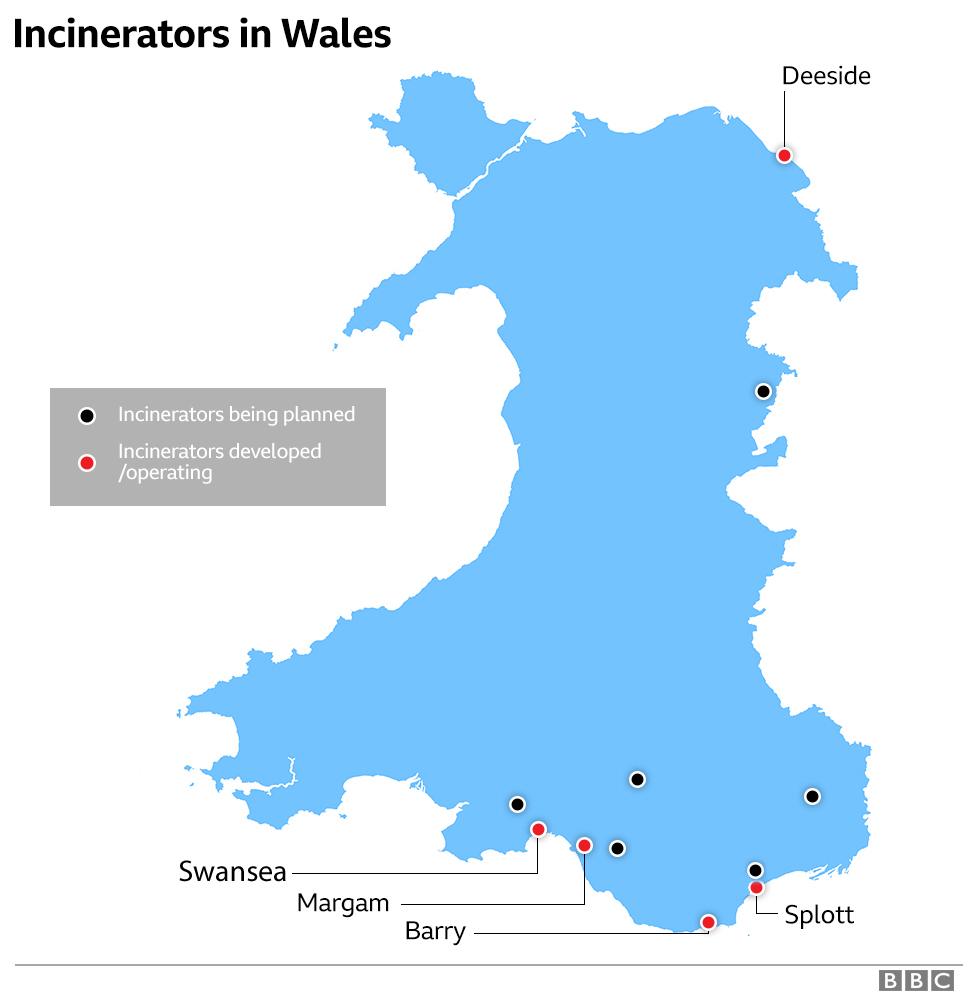
How many incinerators are there in Wales?
There are two incinerators - or "energy from waste" plants - already operating in Wales and two more have been built.
Crymlyn Burrows in Swansea opened in 2002 to deal with waste from Neath Port Talbot and Bridgend, although it has been forced to close on occasions in past years for breaching the emission limit for dioxins.
Trident Park, operated by Viridor near Splott, Cardiff, deals with 172,000 tonnes of waste a year from five councils - and generates 250 GWh of electricity for the National Grid.
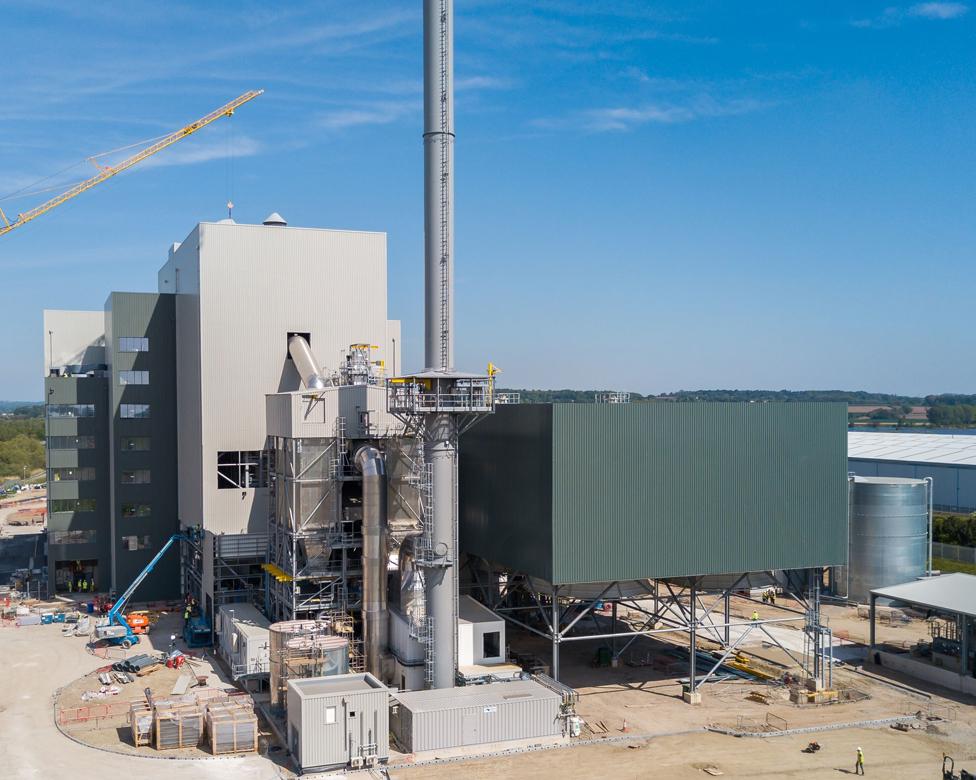
Wheelabrator expects to have its Parc Adfer plant - on an old steelworks site on Deeside - open by the end of 2019

The developers behind a controversial incinerator at Barry Dock hope to be up and running by the end of the year.
Meanwhile the £800m Parc Adfer plant on Deeside is expected to be operational by the end of 2019 and will process 200,000 tonnes of waste a year from Conwy, Denbighshire, Flintshire, Gwynedd and Anglesey, that would otherwise end up in landfill.
A Wheelabrator Technologies spokeswoman said once fully operational the plant would generate enough renewable energy to meet the needs of more than 30,000 homes and businesses.
"In addition Parc Adfer will enable recycling of valuable materials and has already created opportunities for a wide range of local suppliers and supply chain companies," she said.
Six more proposals are at various stages on the road in the planning process.
They include revived plans for a plant on the site of the old Llynfi power station near Llangynwyd, Bridgend, controversial proposals which have been rejected by planners for Llansamlet, Swansea and a £150m plant at Wentloog on the outskirts of Cardiff.

What are the arguments in favour?
Recycle for Wales, a national campaign funded by the Welsh Government, argues that improvements in technology and regulation mean incineration emissions have fallen significantly in recent decades, external, and the plants also turn waste into renewable electricity and heat.
It claims landfill is not a sustainable option for dealing with our rubbish as space is running out, and it also creates methane, a powerful greenhouse gas.
Robin Latchem, a former editor of trade journal Materials Recycling World said incineration played "a key part in making sure nothing goes to landfill".
More plants would be required, he predicted, as the commercial and industrial sectors are weaned off sending their waste to be buried.
"We don't want to stick it in the ground or send it abroad, so until you and I get much better at recycling, and the manufacturers and all the people in the supply chains make their packaging easier to recycle and make less of it - you have to incinerate."
"It's a stop-gap, a shock absorber."
The "bad press" incinerators have received could be addressed, he suggested, if developers and local authorities were "a lot smarter about what the plants do once they're installed" such as providing affordable heating for communities so they see the benefits "in their pockets".
The Welsh Government has set a limit on the amount of household rubbish that can be sent to incinerators until 2025.
"As a responsible nation, we want to deal effectively with our non-recyclable waste in a way which prevents it from either polluting the environment or sees the problem being exported," a spokesman said.
"For this reason we have invested in infrastructure to extract electricity and heat from this material and dispose of it safely, to the highest environmental standards."
Councils are allowed to send up to 30% of household waste to be turned into power or heat, in order to encourage efforts to recycle the rest.
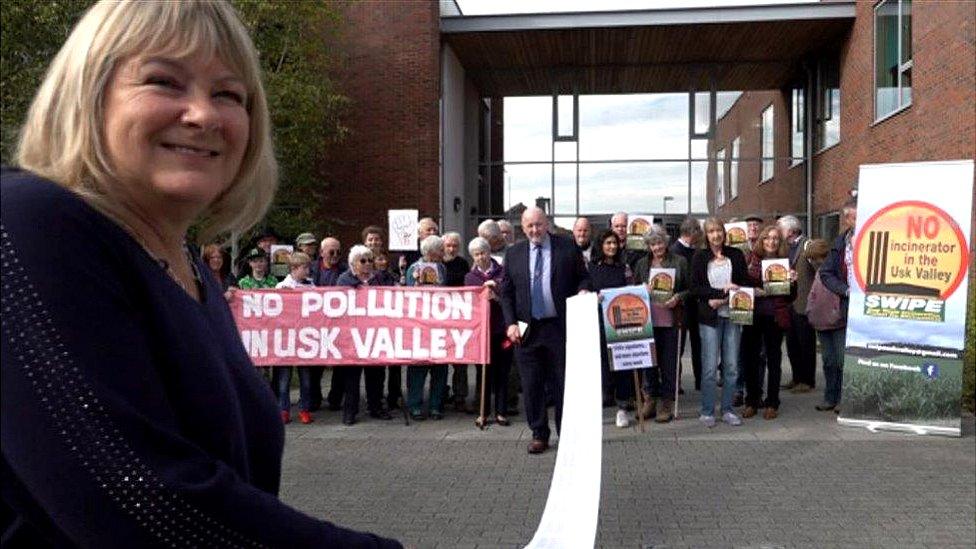
A petition against an incinerator in the Usk Valley has been presented to Monmouthshire council
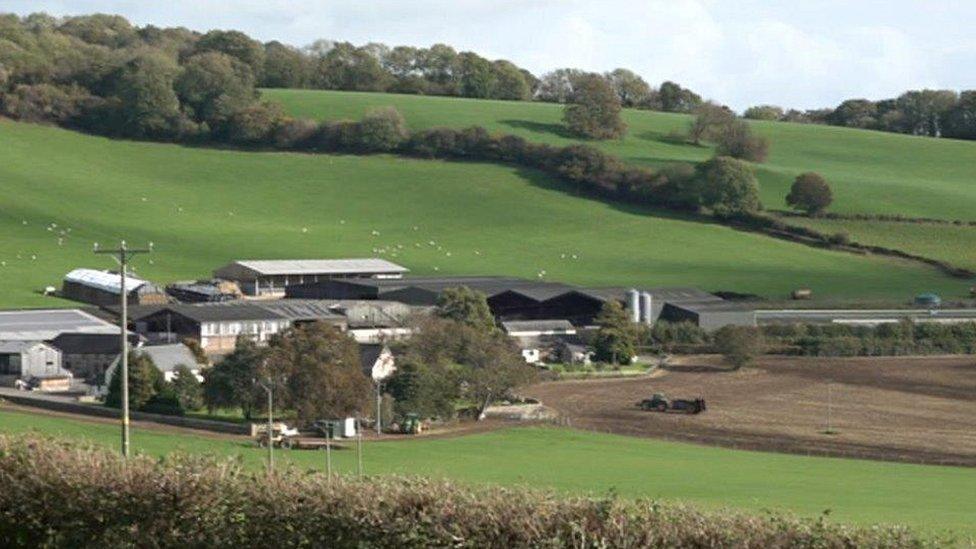
The incinerator would provide electricity and heat for a poultry farm, with the potential to supply the National Grid
'Last century's technology'
Plans to expand a private gasification plant in the Usk Valley, external have led campaigners to present a 1000-signature petition to Monmouthshire council.
David Morgan of Trostrey Court near Llancayo hopes to turn waste wood and non-recyclable plastics, into electricity for his farm and the National Grid.
Lindsey Williams, who is coordinating the campaign group's efforts, said it was worried about air pollution and carbon emissions from the site.
It comes at a time when the council has declared its own "climate emergency".
"It's ridiculous for the council to try to reduce its emissions on the one hand and then think of approving a plant like this on the other," Mrs Williams said.
"That's even before we start to think about traffic and the visual impact of an industrial plant in the valley."
"We think gasification is last century's technology and involves bringing waste long distances."
Mr Morgan told BBC Wales his planning application was simply for a storage building for the fuel.
The generator itself has already been built, with all relevant consents in place.
He claims the site has been operational for the last four years, though the campaigners dispute this.
An environmental report prepared on his behalf and submitted to the council concluded emissions were likely to be "negligible" and the effect of production processes "well below" relevant critical levels at nearby sensitive ecological sites.
- Published20 July 2019
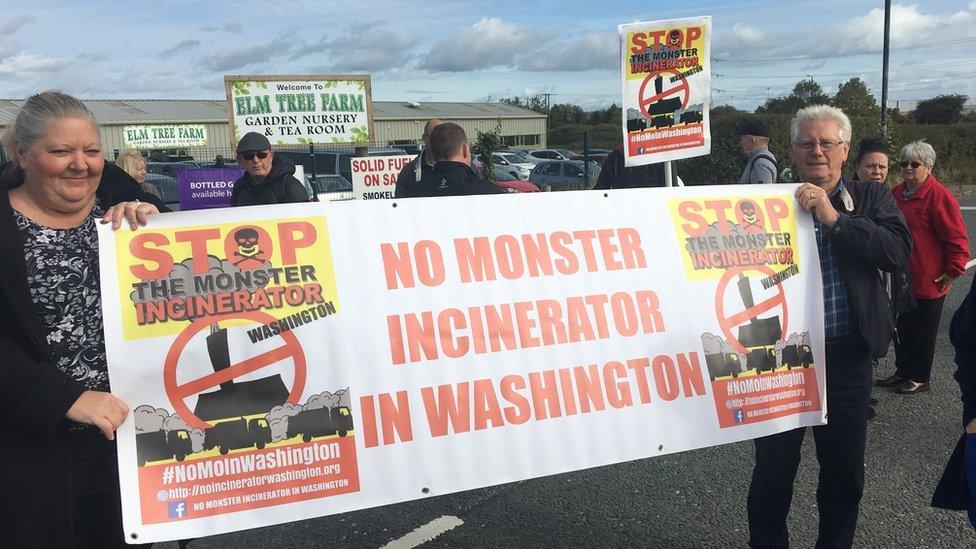
- Published1 July 2019
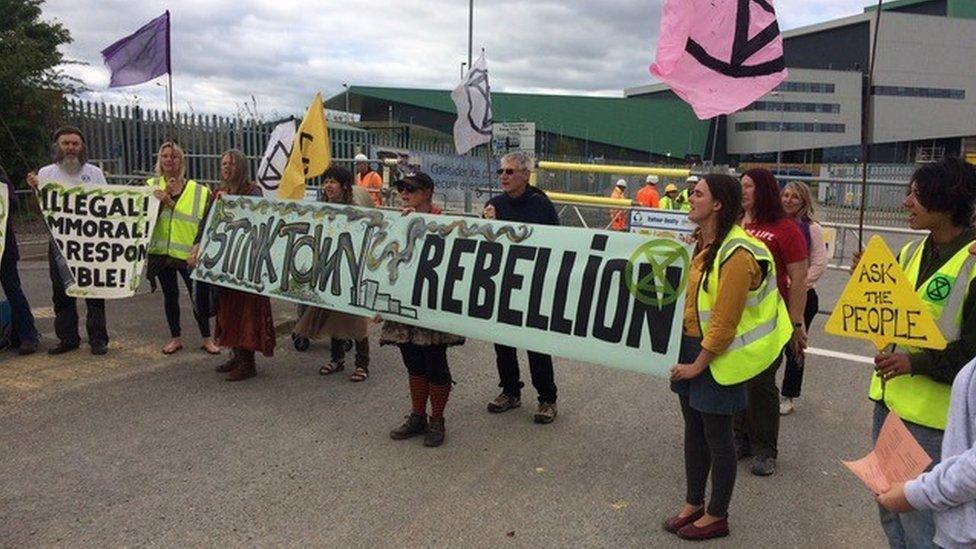
- Published7 May 2019
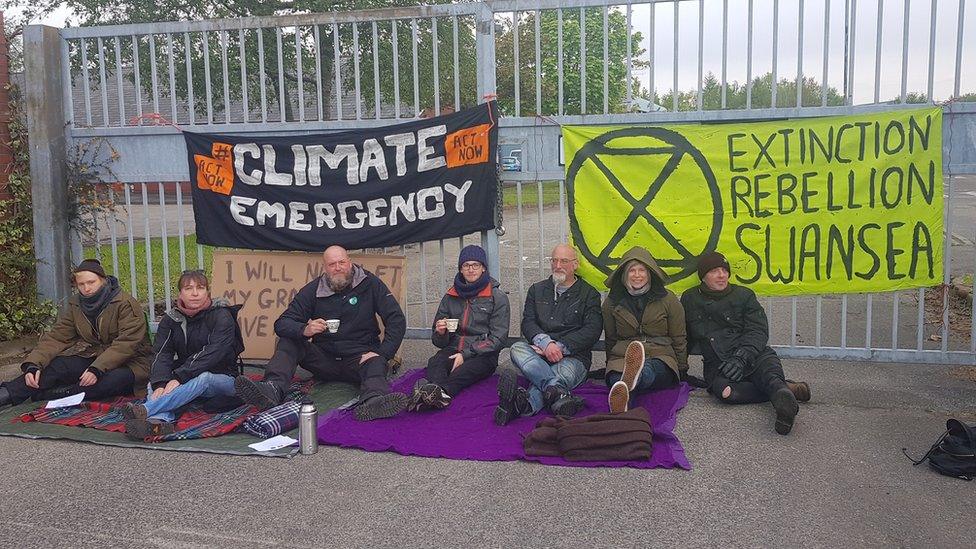
- Published11 September 2017
